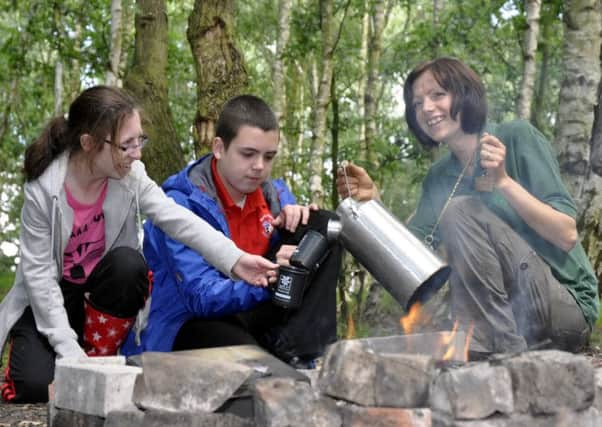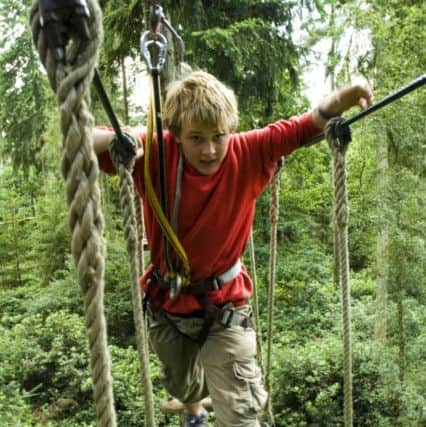Calls for laws to bring back wildlife


Camping out, discovering a quiet corner of their own or coming face to face with wildlife can all help to boost a child’s mental and physical health but experts have warned fewer and fewer children in Yorkshire and the rest of England are getting the opportunity to get close to nature.
Last night campaigners called for new laws to restore wildlife and increase access to nature, with the RSPB and Wildlife Trusts claiming if every household in England had good access to quality green spaces, it could save an estimated £2.1 billion in healthcare costs.
Advertisement
Hide AdAdvertisement
Hide AdThey say the UK’s natural environment is in decline, while inactivity and obesity are escalating, communities are facing a growing risk of flooding, and the economy is using the natural world unsustainably. The economy, communities, education and well-being are all inextricably linked with a healthy natural environment and people’s quality of life will suffer if action is not taken to boost nature, they said.


Dr Rob Stoneman, chief executive of Yorkshire Wildlife Trust said: “Simply clinging on to the tattered remnants of Yorkshire’s wildlife in protected sites that don’t even offer true protection is not good enough. We now need a strategy and a law to restore the wildlife of Yorkshire.”
The RSPB and Wildlife Trusts are calling for a new Nature and Wellbeing Act, which would commit to restoring nature in England within a generation. New laws would include targets for increasing populations of key species by 10 per cent and ensuring that 80 per cent of Sites of Special Scientific Interest (SSSIs) are in good condition by 2040.
The act would also put a duty on national and local authorities to increase the extent and quality of natural green spaces and to ensure all households have access to nature.
Advertisement
Hide AdAdvertisement
Hide AdMartin Harper, conservation director for the RSPB, said: “We know that nature is good for us but we also know that nature is in trouble and that our children rarely play in natural places.”
A green paper from the conservation groups also calls for the creation of a Natural Capital Committee or Office for Environmental Responsibility to scrutinise new laws for their environmental impact and ensure that nature is properly valued.
It highlights the need for nature, warning that the most deprived communities are 10 times less likely to live in the greenest areas. Fewer than one in 10 children play regularly in wild places compared with almost half a generation ago.
The physical fitness of children is declining by up to 9 per cent a decade, physical inactivity costs the economy £20bn a year. But accessible green space is good for mental and physical health, boosting exercise and reducing stress. Nature near home is particularly important for children, helping them cope with stressful life events and increasing attention spans.
Advertisement
Hide AdAdvertisement
Hide AdHowever nature is struggling, with 60 per cent of studied species declining in the last 50 years and habitats vanishing.
In Yorkshire a number of schemes are already being carried out to improve habitats. The Yorkshire Wildlife Trust is creating and managing a wet woodland habitat in the Upper Aire Valley in a four year project funded by SITA Trust will see work carried out across five sites including Steeton Ings, Silsden and Otterburn.
Wet woodland habitats are good at storing floodwater and can help prevent it reaching towns and villages.